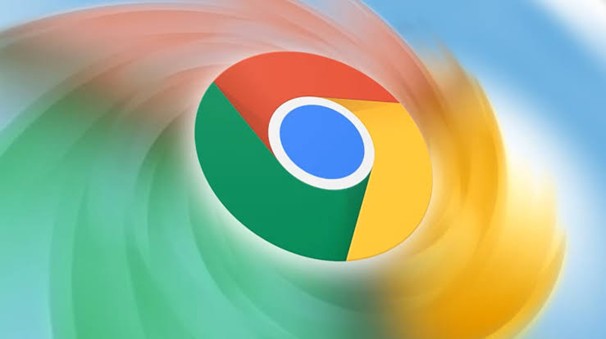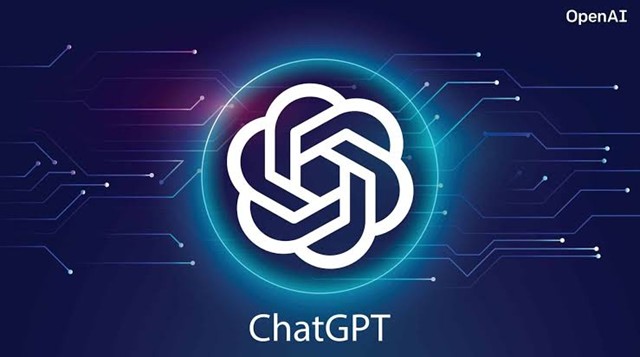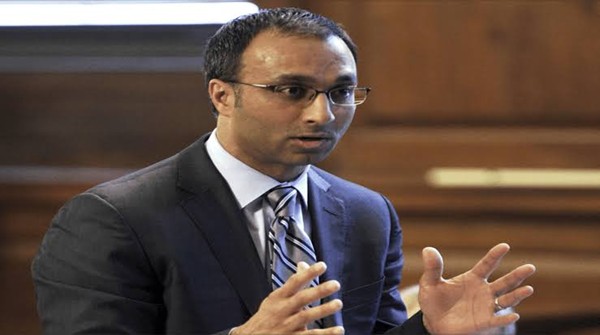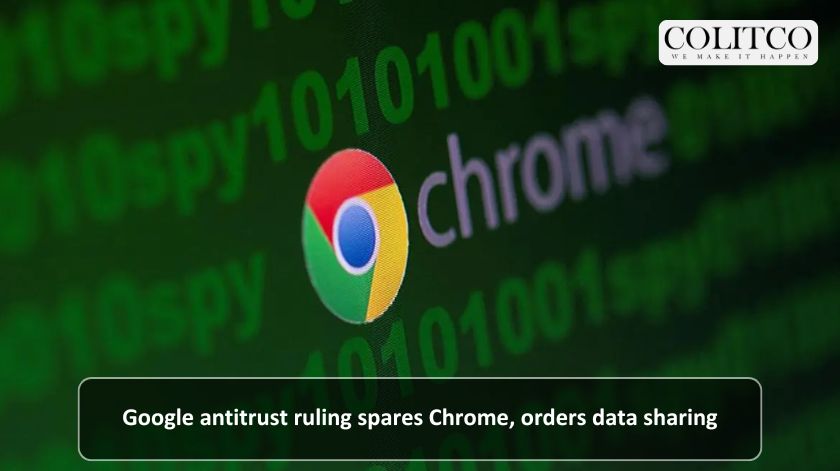On September 2, 2025, Washington received the Google antitrust ruling. With the decision, Judge Amit Mehta let Google keep both its Chrome browser and Android OS. That in itself is a big deal because the ruling rejected the U.S. Justice Department’s request to have Google sell out Chrome and break up Android.
Google will have to share parts of its search index and query data with rivals. Previously, it was a Google monopoly. It seems now Google will be forced to share parts of its search index and query data with rivals, which previously was a Google monopoly.
This order is designed to balance competition. AI companies and search competitors might now have access to crucial datasets from Google. This is a drastic change in the stance of antitrust regulators concerning technology companies. Thus, the Google antitrust ruling preserved the company’s core assets but addressed the issue of data dominance.

Judge Mehta rejects DOJ bid to split Google, lets firm keep Chrome and Android.
Why does this matter for investors?
Financial markets immediately responded. Shares of Alphabet increased in after-hours trading from 7.2% to 7.8%. This increase was fueled by investors’ relief at the news that the company would not have to sell Google Chrome. Apple’s stock rose by nearly 3%, indicating the relief of the continued existence of the lucrative deal with Google, which is connected to the antitrust case.
Due to the Google Apple antitrust case, the company has to pay Apple several billion dollars a year to secure its position as the default and iPhone search engine. The arrangement continues unchanged after the ruling. For Apple, the ruling ensured steady revenue; for Google, it prevented the loss of a strong distribution deal.
The investors viewed the decision as a deal because Google had to accept new compliance obligations, but, at the same time, escaped the structural changes that could have harmed their ecosystem. While the market analysts viewed the decision as a win for the shareholders, the regulators considered the decision a partial success for themselves.
How will AI competition and antitrust be reshaped?
The AI companies will likely benefit the most from the remedies. The judge underlined how tools like ChatGPT pose the most significant threat to Google’s monopoly. This ruling makes competing search innovations easier by requiring the sharing of data.
Secondary and tertiary search competitors once faced data austerity. The Google antitrust ruling now opens the door for new market players to build competing search models. This could intensify the competition between Big Tech and AI start-ups. Increased scrutiny of AI competition and antitrust has become closely related, as regulators become more focused on data access as a competitive factor.
But here, the fixes are quite small. While Google will be compelled to share data, the data will be skimpy and will continue building tech on top of its infrastructure. To me, experts who claim that the digit economy development is cautiously balanced by the Google restraint and relief offered are quite far from reality.

Judge highlights AI tools like ChatGPT as the biggest challenge to Google’s monopoly.
Is the Google Chrome sale permanently off the table?
The judgment offered insight into the bigger picture—Google Chrome’s divestment is no longer an issue. The Justice Department’s demands to divest Chrome and Android were rejected. As Judge Mehta put it, trying to fix matters with extreme measures is likely to do more harm, especially with markets already shifting because of AI.
There was also a decision to settle on behavioural remedies. These behavioural remedies eliminated “ending exclusive contracts that had prevented rival services from being featured on devices”. This signals a change in how things are handled. Now it seems like regulators want to encourage healthy competition, rather than tearing down entire platforms.
That said, a lot is still unknown. The matter may not conclude with this. The Justice Department is predicted to file an appeal, dragging the case into 2027. The appeal might even make it to the Supreme Court, which leaves the fate a lot further in the future.
Why did the court avoid breaking apart Google?
Judge Mehta noted the rise of AI competitors and their impact on antitrust issues. He pointed out that today’s competitors, especially in AI, pose a greater threat than previous ones like Bing and Yahoo did. He cited this as a reason to avoid strong measures.
Suing the company would have been harsh and, in the face of new technology, he points out that the court should practice “humility.” The court, instead of ordering a structural breakup, implemented targeted remedies that would foster competition and account for the uncertain path of AI technology. The ruling is also in line with what’s happening globally.
Although regulators are investigating large tech companies, they are still cautious about disrupting essential digital infrastructure. The Google antitrust ruling is consistent with this approach.

Judge Mehta cites AI competitors’ rise as a key factor in antitrust considerations
What does this mean for the Google-Apple deal?
The Google-Apple antitrust case was followed with great interest. With the deal, Google pays Apple about $20 billion every year to keep its search engine as the default on iPhones. The judge ruled that this contract could remain in place, even though it was a core part of the case.
Opponents believe that this maintains Google’s advantage in distribution. Proponents believe that changing the agreement would cause disruption for users and would not necessarily provide a better alternative. At this point, the Google-Apple search deal remains one of the most lucrative partnerships in the technology industry.
Apple enjoys a steady stream of payments that funnel into its services revenue. For its part, Google retains the ubiquitous gateway that ushers in billions of users. The court’s decision shows that its focus is on data access instead of distribution contracts, which is what regulators seem to prefer.
Also Read: Google to Invest $9 Billion in Virginia for Cloud and AI Expansion
FAQs
Q1. What data must Google share?
To lower the barriers to entry, Google is required to share its search index and query data with its competitors.
Q2. How does the ruling affect Chrome and Android?
Google retains control of both Android and Chrome. Regulators have dropped calls for divestiture, calming fears of it causing disruption.
Q3. Could Google face future break-ups?
Yes, it is possible. The Virginia case regarding advertising technology is still ongoing and could result in breakups. The appeals process could prolong the resolution.
Q4. What is the significance of this ruling from a global perspective?
The ruling encapsulates the new methodology of global antitrust enforcement. It combines a bold approach to foster competition with restraint.





